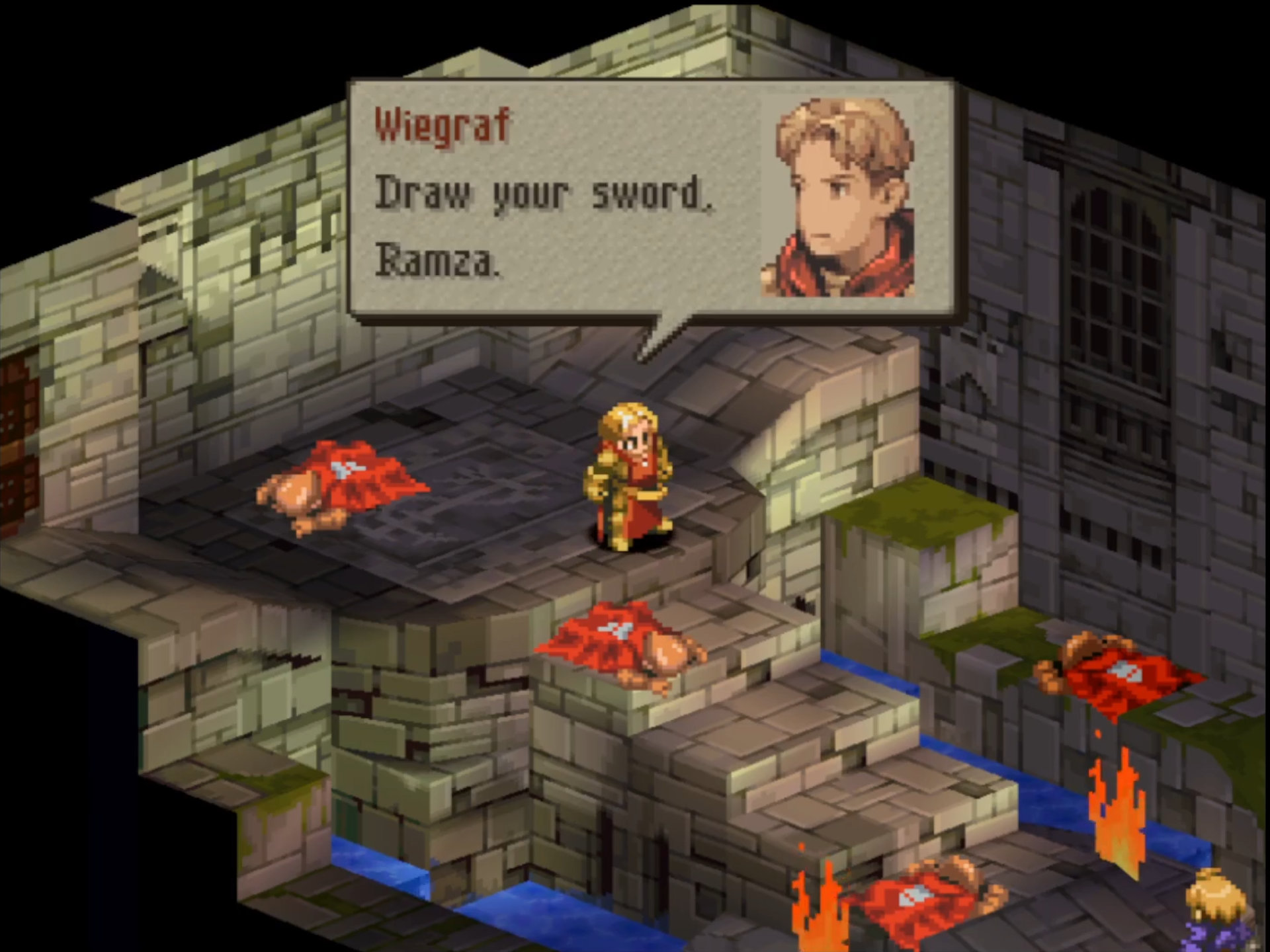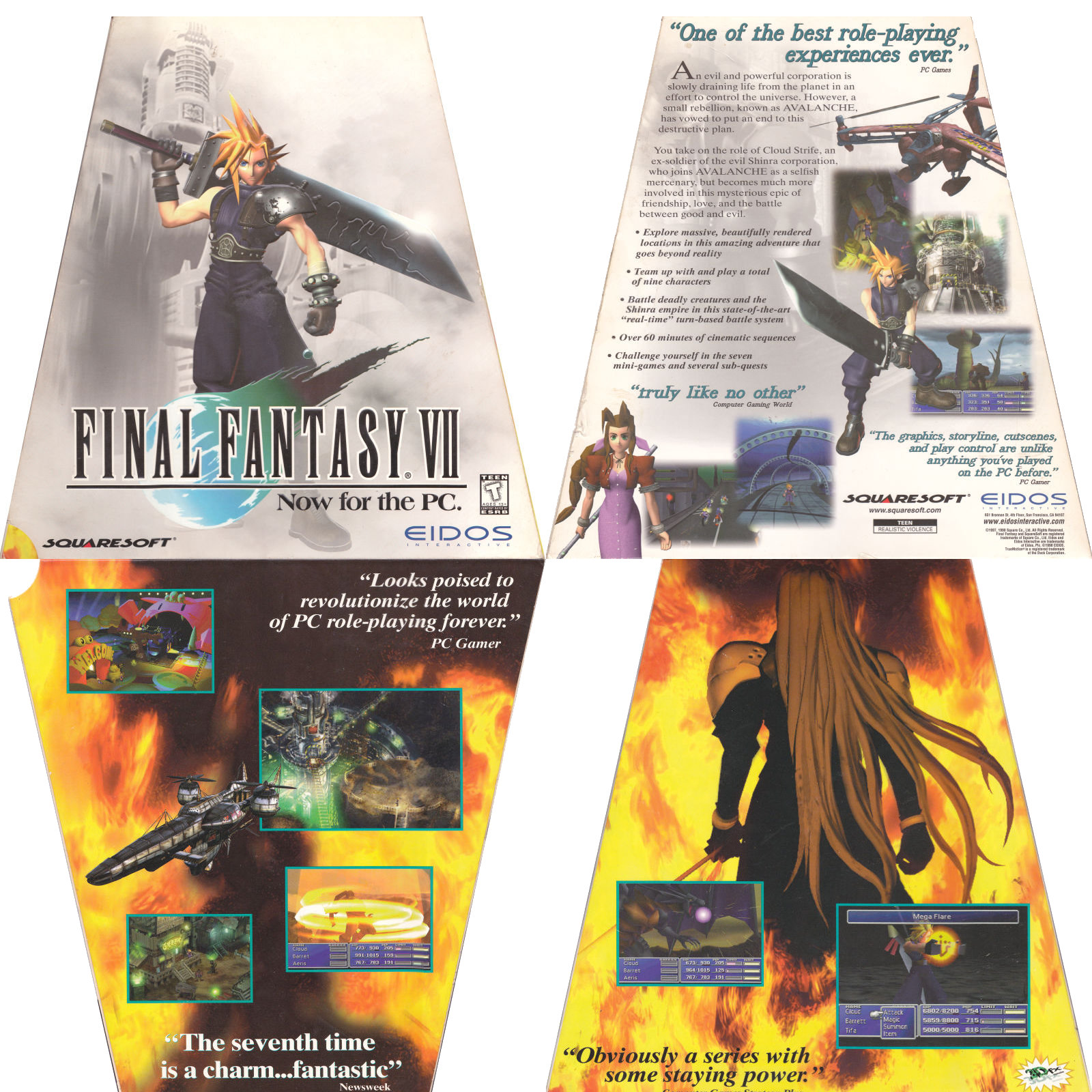Metaphor: ReFantazio is a perfectly reasonable JRPG with a correct length. Unlike its spiritual predecessor Persona 5, which overstays its welcome by about 20 hours, Metaphor wraps up in 65-70 for the main story — long by the standards of games generally but right in the sweet spot for sprawling JRPGs. But I can’t just “finish” a JRPG; I am a prisoner to these games, I have been since childhood. So my final playtime was well over 100 hours, pointlessly grinding and optimizing. I need to learn to stop.
What I am describing is primarily a “me” problem, although you may share it. To both my detriment and benefit, I cannot live an unoptimized life when the optimized one is clearly and directly in my line of sight. Sometimes this compulsion bears fruit and I come out of a fugue state having learned the best multi-ply Japanese cookware set. Other times I get caught in a gameplay sinkhole and cannot do anything until I beat a game, truly beat it, totally and completely.
JRPGs bring out this behavior in me more than any other subgenre. They are often meant to be a grand investment of your time, something you slowly whittle away at for a few hours every night after work, or consume uninterrupted in your teen years like a seagull swallowing a large fish in one gulp. These games are replete with secrets, often not signposted clearly, and god help you if you miss them and you have to reload an old save. Older JRPGs, particularly the ancient and unreasonable ones, can instill a sense of paranoia in you. This is particularly felt if you have ever saved yourself into a corner before an unreasonably strong boss with little or no way to improve your position.

In a classic JRPG there are almost always one to four grueling super bosses whose difficulty will far outstrip the main boss. There are hidden items and ultimate weapons, often with elaborate quests, that may or may not be useful by the end of the game. Modern Ubisoft-coded open world games attempt to ape this mystique superficially, but they always feel like Potemkin objectives — a marker for a marker’s sake, a quest for a quest’s sake. (Ironically, I felt this false accomplishment strongest this year in Final Fantasy VII Rebirth).
This is partially why playing the Persona games have been torture for me since Persona 3. The calendared schooldays with their various events and quizzes invite a specific, optimized route with little room for deviation. I cannot help but be tied to a guide while playing those games, it is in my nature and the game’s. This rigorous structure sucks the joy away and turns the entire thing into homework for me. To Metaphor’s immense credit, the developers have pulled the guts out of that series and retooled it so that you can easily maximize your social links without ever looking at a guide.The sheer mercy in that act alone, along with the fact that they don’t do anything terribly tone deaf or egregious, makes it a radical improvement over that team’s previous outings. Maybe it is a recognition that such a brutally narrow schedule was unnecessary in 2024, or maybe the designers realized they were getting too old for this too.
And yet, despite that, I still spent 146 hours according to Steam (some of this was screen idling or involved reloading old saves to maximize the final days) pummeling this game into the pavement, grinding well beyond the threshold of being able to beat the secret dragon bosses handily. Metaphor makes it simple to grind enemies below your pay grade — small fry enemies can be easily wiped out in the dungeon without having to engage in combat, which makes the entire loop feel like you’re playing a game in an emulator with frameskip on. It also makes the question of money trivial by making the Merchant Archetype a money printer – simply grinding weak foes in dungeons trivializes any financial woes. But Metaphor also has a deep job class system — a succulent time sink for each and every one of your characters.

I remember a summer in middle school playing Final Fantasy VII for the second time. The first time had been on PlayStation, a rental from Blockbuster Video that I had returned many weeks late and stopped right before the last boss on the third disk. The second was on PC, in my bedroom with crisp, Voodoo 2 accelerated graphics. I had the family’s hand-me-down TV going in the background with DVDs on a loop (a TV and a computer in your room was an extravagance at the time). I did not see the end of FFVII until each and every character was at level 99. By the time I had completed it, I had forgotten why I was doing it except that I had chosen to do it. I got no reward from it, no special ending with all the characters telling me what a good job I did. I don’t think I felt more satisfied having done it. The light of that game had long gone away, and nothing had remained except the impulse to see the number go up until it couldn’t any more.
I remember doing lesser versions of this countless times. Final Fantasy Tactics Advance for the GBA consumed a summer. Dragon Quest VIII: Journey of the Cursed King consumed a semester. Disgaea felt like it was designed in a lab specifically to fuck with me. Recently I replayed the original Final Fantasy Tactics on my MiSTer and power leveled my jobs far beyond what was required, going out of my way to save scum Limberry Castle Gate until Ramza learned Ultima despite Ultima not being that good a spell. I have had never touched Final Fantasy XIV because I have lived the MMO lifestyle and I know precisely how badly it would fuck my life up.
This is also why I have such a deep respect for shorter JRPGs like Chrono Trigger, Live-A-Live and SaGa Frontier – games that are either so brief that they can’t trap you in a grinding loop or introduce multiple characters and storylines to interrupt the temptation of linear progression to level 99. One of the strongest choices a game can make is to decouple or mess with the attachment players have towards their digital selves, Nier Automata being the best example. We are all going to die one day, some of us sooner than others. Trite though it is to say, it’s true that the journey is the important part, and most of us will never return to these over-optimized selves. Maybe we should let go and delete our save files, dumping those personas into the ocean. I don’t want to say that the completionist path is time wasted, I can only speak for myself, but I can think of several uses for my time that would have made me feel more fulfilled.
Metaphor is ultimately a far more reasonable game than the ones that I let suck me in before. And as I approached the end, after I had beaten the super bosses, I did loosen up a little bit. I did not maximize all my Archetypes, although I did spend some time seeing how hard I could hit the last boss by throwing money at him. I am older, I am thinking about having children, and I do not have the kind of time that I used to have. I am learning to take things easy, to be a little less optimized and at a lower level. One day I will figure out how to play these games normally, though I guess that what I’m describing is far more common an affliction than any of us would like to admit.


